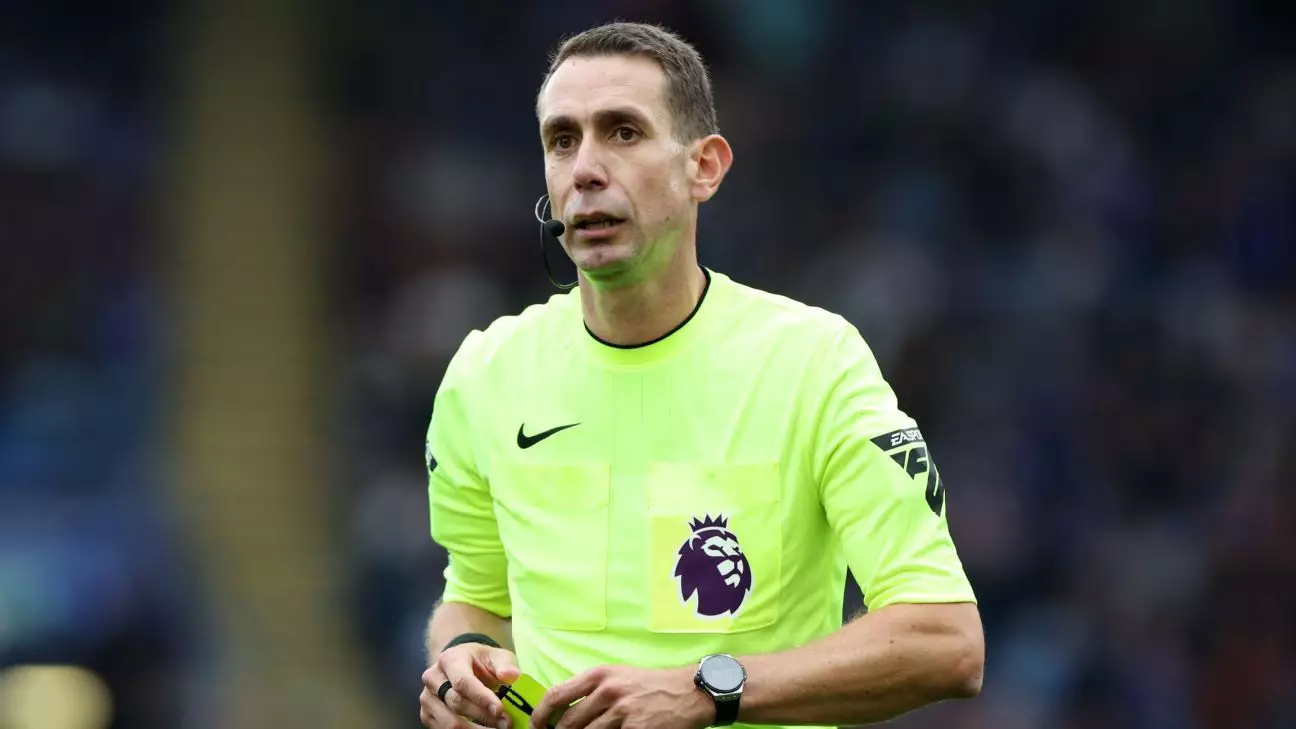The English Football Association (FA) has embarked on a serious inquiry concerning suspended referee David Coote after claims emerged that he discussed issuing a yellow card before officiating a match. The incident in question relates to a game between Leeds United and West Bromwich Albion in October 2019. Although Coote’s decision to book Leeds player Ezgjan Alioski during the match hasn’t raised questions about the validity of the call itself, the implications surrounding Coote’s alleged pre-match communications cast a shadow over the integrity of officiating in football.
Reports suggest that Coote had interacted with a fan online, discussing the potential for Alioski to receive a yellow card. The conversation reportedly occurred a day before the match, leading to further scrutiny when Coote, in a subsequent message, hinted at a betting implication regarding the game. An FA spokesperson acknowledged the gravity of these allegations, fueling concerns about transparency and accountability within football officiating.
In response to the accusations, David Coote has been vocal in his defense, asserting that the allegations are both false and defamatory. In his statement, he emphasized that any personal challenges he may have faced have not influenced his officiating decisions, insisting that he has always maintained the integrity of the game. His public defense underscores the heavy burden of reputation that referees carry, often placed under the microscope for their choices during matches.
The potential ramifications extend beyond personal integrity. The officiating body, Professional Game Match Officials Limited (PGMOL), is aligned with a strict protocol regarding integrity violations and has affirmed its zero-tolerance stance toward any breaches of their Code of Conduct. Coote’s prior suspension from duties following disparaging remarks about Liverpool and Jürgen Klopp only exacerbates the situation. A further video that allegedly shows him engaging in questionable behavior led to PGMOL’s decision to suspend him indefinitely.
This episode is emblematic of broader challenges in football governance, where perceptions of bias and impropriety can severely undermine public trust. The FA and PGMOL’s swift actions in initiating investigations reveal the sport’s desire to safeguard its reputation amid rising scrutiny. The underlying issue, however, raises questions about the systemic pressures referees face, particularly in the high-stakes environment of professional football.
With the FA overseeing an independent investigation, we are reminded of the crucial role transparency plays in sport. While maintaining the integrity of the match officials is essential, the sporting community must also be proactive in addressing the mental and social challenges referees encounter, to prevent such scandals from tarnishing the reputation of football further.
As the investigation unfolds, the football world watches intently, eager for clarity and resolution. It is vital that the governing bodies involved reinforce their commitment to integrity through improved training, support systems, and clear communication regarding the expectations placed upon referees. Only by confronting these issues head-on can football hope to restore the confidence of its fans and stakeholders and ensure that the sanctity of the game is upheld amidst growing scrutiny. The outcome of this particular situation will adeptly serve as a bellwether for how the sport navigates its complexities in maintaining fairness and integrity at all levels of competition.

